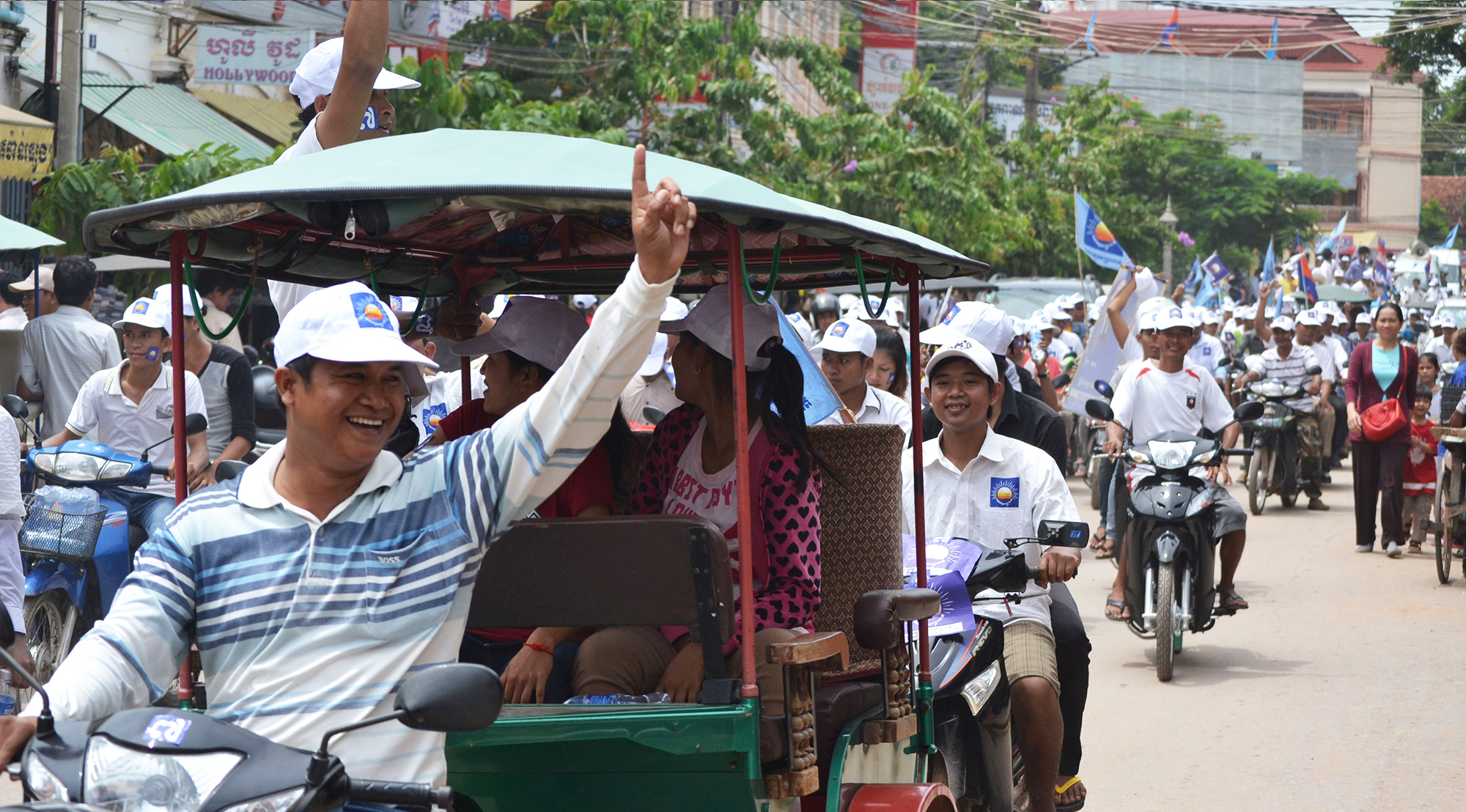This article by Ali Al-Nasani was published here on July 9, 2018.
On July 29, Cambodia will hold general elections to vote for members of its National Assembly. However, the only opposition party in parliament has been banned in the run-up to the election. The country is heading towards a one-party system.
When Cambodia’s newly formed opposition party, the Cambodia National Rescue Party (CNRP), received over 40% of the votes at the general elections in 2013, the country experienced a kind of political spring. All of a sudden, the country’s problems were being discussed openly, tackling issues such as excessive corruption, nepotism, land theft, an inadequate education system and a lack of social security. Young people took to the streets in celebration of democracy and themselves.
The opposition party’s success was also its downfall
When the CNRP received almost 50% of votes in the 2017 local elections, the ruling Cambodian People’s Party (CPP) realized that by holding fair and free elections in 2018, it would run the risk of having to hand over power. What followed was nothing less than the reduction of the scope for democracy on a massive scale. Any pro-opposition radio stations or newspapers were shut down, while the CNRP itself was banned under the pretext that it had committed treason. Sam Rainsy, the leader of the opposition, was sent into exile, while his deputy Kem Sokha was imprisoned. From that point onward, Facebook and Twitter were monitored, and anybody expressing critical views was hauled to court.
The murder of prominent regime critic Kem Ley under circumstances that remain unclear, the arbitrary imprisonment of activists and violent political rhetoric have had an impact on the work of civil society. The massive restrictions on democratic freedoms have pushed back the positive developments of the past few years. Women are worst affected by this dismantling of democracy, which is evident in the glaring failure of both the government and the opposition to commit to the promotion of women in politics.
Anybody who raises their voice is shut down
The government is repeatedly threatening to shut down any organization that does not operate with political neutrality. These threats are directed particularly toward NGOs that are critical of the government. So “politically neutral” might as well mean “silent”.
After the CNRP was banned, all of its seats in local councils were allocated to the ruling party. The government had no legal basis on which to do this. The local councils then elect the senate, so it is little wonder that the ruling party (the CPP) gained 100% of the seats in the senate elections that followed in February 2018. Without the participation of the major opposition party, the general elections for the National Assembly, to be held at the end of July, are in danger of becoming a farce. Although a number of small parties have registered for the elections, they are either considered to be pro-government or are completely unknown.
Using carrot-and-stick tactics to secure victory at the elections
At the same time, the government is bestowing gifts upon the Cambodian people. Hun Sen himself, who has governed the country for over 30 years as Prime Minister, gave out cash to textile workers. In addition, every army veteran has been promised a new house, and in future pregnant women will supposedly receive 40 dollars during their pregnancy. Across the country, new construction projects have been approved for the local population. The government has also repeated its promise – made many times before – to abolish the practice of creating so-called ghost employees (names of non-existent people on payrolls) in government departments and public administration offices in order to bring an end to corruption.
These measures also finally led to the definitive resolution of several land conflicts that partner organizations of the Heinrich Böll Foundation have been working on for many years. For instance, 138 families living just south of Phnom Penh have now been given land titles after years of fighting for them, protecting them from displacement.
With this carrot-and-stick policy, the election result may be decided already: anything other than an overwhelming majority for the governing party would be nothing short of a miracle. Cambodia is therefore heading towards a one-party system.
Not looking good for democracy in Cambodia
In light of the present circumstances, the EU has withdrawn its support for the general elections, and the elections will not be officially monitored either. However, the West is struggling to take any further action. It has been known for years that Cambodia’s trading benefits, which allow the country to export goods to the EU duty free, go hand in hand to some extent with human rights violations. Although the EU announced an investigation as long ago as 2013, it has still not been carried out.
The typical argument in support of further cooperation with the Cambodian government is always that nobody wants to drive the country into China’s hands. This overlooks the fact that China has always been a strong ally of every Cambodian government. China provides Cambodia with huge investments, blank checks for military spending and financial support for pro-government NGOs, and Cambodia returns the favor by supporting China on the international stage. At the same time, China needs Cambodia to prevent the ASEAN member states from taking a joint stance in the conflict in the South China Sea.
This makes the partnership between Cambodia and China a win-win situation for both countries. This does not bode well for democracy in Cambodia.


